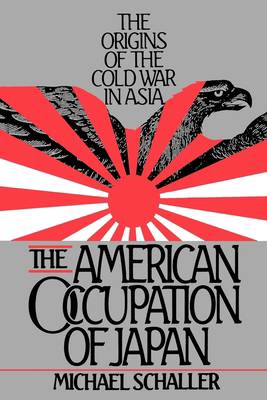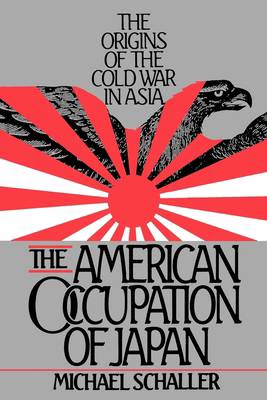
- Afhalen na 1 uur in een winkel met voorraad
- Gratis thuislevering in België vanaf € 30
- Ruim aanbod met 7 miljoen producten
- Afhalen na 1 uur in een winkel met voorraad
- Gratis thuislevering in België vanaf € 30
- Ruim aanbod met 7 miljoen producten
Zoeken
€ 75,95
+ 151 punten
Omschrijving
In this novel and intriguing book, Michael Schaller traces the origins of the Cold War in Asia to the postwar occupation of Japan by U.S. troops. Determined to secure Japan as a bulwark against both Soviet expansion and Asian revolution, the U.S. instituted ambitious social and economic reforms under the direction of the flamboyant Occupation Commander, General Douglas MacArthur. MacArthur was later denounced by the Truman Administration as a "bunko artist" who had wrecked Japan's economy and opened it to Communist influence, and power was shifted to Japan's old elite. Cut off from its former trading partners, which were now all Communist-controlled, Japan, with U.S. backing, turned its attention to the rich but unstable Southeast Asian states. The stage was thus set for U.S. intervention in China, Korea, and Vietnam.
Specificaties
Betrokkenen
- Auteur(s):
- Uitgeverij:
Inhoud
- Aantal bladzijden:
- 368
- Taal:
- Engels
Eigenschappen
- Productcode (EAN):
- 9780195051902
- Verschijningsdatum:
- 22/10/1987
- Uitvoering:
- Paperback
- Formaat:
- Trade paperback (VS)
- Afmetingen:
- 155 mm x 227 mm
- Gewicht:
- 603 g

Alleen bij Standaard Boekhandel
+ 151 punten op je klantenkaart van Standaard Boekhandel
Beoordelingen
We publiceren alleen reviews die voldoen aan de voorwaarden voor reviews. Bekijk onze voorwaarden voor reviews.











